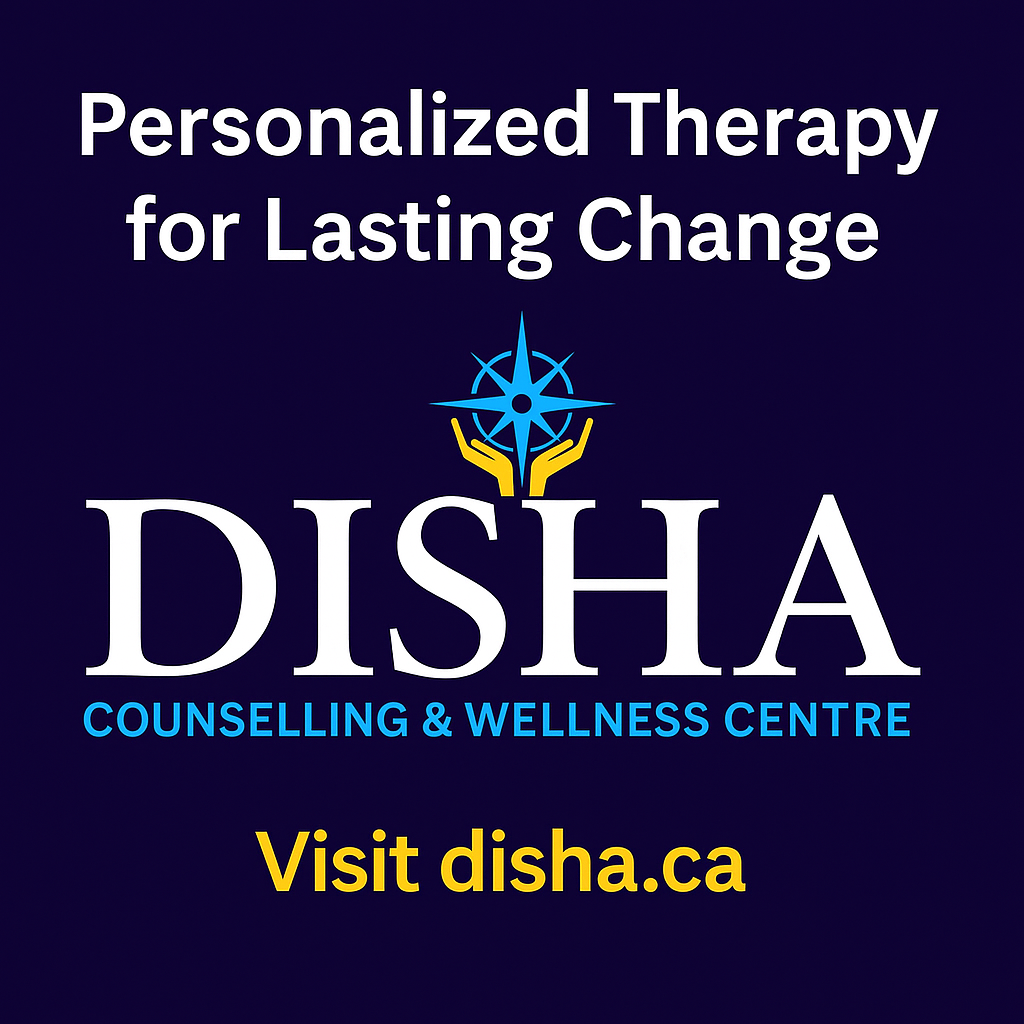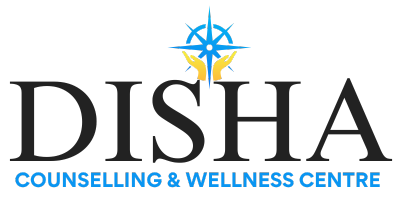Soulful Conversations: How Culturally Sensitive Counselling is Changing Edmonton—And Why Disha MattersYears ago, I sat glued to a cafe chair in Mill Woods, nervously debating whether to call a counselling centre. The anxiety wasn’t just about seeking help—it was about whether I’d actually be understood. As someone who straddled two cultures, I worried: Would a …
Soulful Conversations: How Culturally Sensitive Counselling is Changing Edmonton—And Why Disha Matters

Years ago, I sat glued to a cafe chair in Mill Woods, nervously debating whether to call a counselling centre. The anxiety wasn’t just about seeking help—it was about whether I’d actually be understood. As someone who straddled two cultures, I worried: Would a therapist relate to the stories only my family told? Today, I know my experience isn’t unique—and that’s where Disha Counselling & Wellness Centre comes in. In a city blooming with diversity, finding a space that ‘gets’ you isn’t just nice. It’s essential.
Why Cultural Sensitivity is Non-Negotiable in Counselling
I remember sitting across from a client who kept switching between English and her native language during our session. At first, I thought it was just habit. But then I realized something profound was happening. When she spoke in her mother tongue, her entire posture changed. Her words carried emotions that English simply couldn’t capture. That moment taught me why culturally sensitive counselling Edmonton residents need isn’t just preferred—it’s essential.
The Reality of Edmonton’s Cultural Landscape
Here’s a statistic that stopped me in my tracks: over 30% of Edmontonians were born outside Canada. Think about that for a moment. In our city, nearly one in three people carries the complex experience of navigating between worlds. They’ve left behind familiar cultural frameworks, family traditions, and often, their first language. When these individuals seek mental health support Edmonton offers, they’re not just dealing with anxiety or depression in isolation. They’re wrestling with questions that don’t appear in standard therapy manuals: Will my therapist understand why family honor matters more than individual achievement? Can I explain why my grief process looks different? Will my spiritual practices be respected or dismissed?
The Silent Weight of Cultural Transition
Culture shock isn’t just about missing home-cooked meals or struggling with winter weather. It runs deeper. I’ve watched clients describe feeling like they’re living in translation—constantly converting not just words, but entire ways of being. The stress of adaptation creates a unique kind of mental health challenge that traditional therapy approaches often miss. At Disha Counselling & Wellness Centre, we’ve learned that healing requires more than clinical techniques. It demands cultural fluency. Founder Prachi Agrawal puts it beautifully:
“Our healing starts when our stories are truly heard.”
When Standard Therapy Falls Short
Traditional therapeutic models were largely developed within Western cultural contexts. While effective for many, they sometimes overlook how culture fundamentally shapes our understanding of mental health. For instance, in some cultures, seeking therapy might be seen as bringing shame to the family. In others, mental health struggles are viewed through spiritual rather than psychological lenses. I’ve seen clients struggle with therapists who couldn’t grasp why extended family opinions mattered so much in their decision-making process. Or why certain symptoms appeared during specific cultural or religious seasons. These aren’t just preferences—they’re integral parts of how individuals experience and process emotional challenges.
Building Bridges Between Worlds
Culturally aware therapy Alberta practitioners understand that effective counselling requires building bridges between cultural worlds. This means therapists need training that goes beyond cultural awareness into cultural competence. We need to understand not just what different cultures value, but how these values show up in therapy sessions. At our Wellness Centre Edmonton location, we’ve created what we call a “cultural safety zone.” This isn’t just about having multilingual staff or cultural decorations. It’s about developing therapeutic approaches that honor diverse ways of understanding mental health, family dynamics, and healing processes. The work involves recognizing that resilience looks different across cultures. Some cultures emphasize community healing over individual therapy. Others integrate spiritual practices with psychological work. Some view mental health challenges as temporary imbalances rather than disorders requiring long-term treatment. Cultural sensitivity in counselling isn’t about political correctness or checking boxes. It’s about recognizing that our cultural backgrounds shape how we experience emotions, process trauma, and find healing. For Edmonton’s diverse population, this understanding isn’t optional—it’s the foundation of effective mental health support. When therapists can truly hear these stories, when cultural nuances are honored rather than overlooked, that’s when real healing begins.
What Makes Disha Counselling & Wellness Centre Different?
Walking into most counselling offices feels clinical—sterile walls, generic artwork, and a one-size-fits-all approach that leaves many clients feeling disconnected. But when I first visited Disha Counselling Services at 3818A 97 ST NW, Edmonton, something felt fundamentally different.
The difference isn’t just in the comfortable décor or the thoughtful choice between chai and coffee—though these tiny touches matter more than you might think. It’s in how the entire experience is built around understanding that healing happens differently for everyone, especially when cultural identity plays a central role in who we are.
Beyond Cookie-Cutter Scripts
What strikes me most about Personalized counselling Edmonton at Disha is how their therapists are trained in culturally sensitive practices rather than following rigid, predetermined scripts. Research shows that therapeutic approaches work best when they honor a client’s cultural background, and Disha specializes in this eclectic, personalized support for diverse needs.
Sessions are shaped around each client’s heritage, beliefs, and comfort level. This isn’t about surface-level cultural awareness—it’s about understanding how family dynamics, traditional values, and cultural expectations influence mental health. When a therapist truly gets why certain topics might be sensitive or why family involvement matters so much, the entire therapeutic relationship shifts.
Language and Individual Connection
The ability to offer counselling in multiple languages transforms the entire experience. There’s something profound about expressing emotional pain in your mother tongue—nuances get lost in translation, but feelings don’t. This individualized approach means clients can communicate in whatever language feels most authentic to their experience.
As Prachi Agrawal notes:
“It’s not just about what you say, but how you’re heard that starts the healing.”
This philosophy permeates every aspect of the Wellness Centre Edmonton experience. The welcoming environment includes details that remind clients of home or cultural roots—creating a space where vulnerability feels safer.
Comprehensive Service Range
Disha champions solution-focused and holistic therapies, tailoring support to each visitor across multiple service areas:
- Individual counselling that honors personal cultural identity
- Family therapy that understands complex cultural dynamics
- Couples counselling that navigates cross-cultural relationships
- Meditative programs blending Eastern and Western philosophies
This range reflects Disha’s core mission to empower individuals by providing customized, culturally relevant counselling—grounded in empathy and understanding. The integration of meditative practices with traditional Western therapeutic approaches creates something unique in Edmonton’s mental health landscape.
The Environment Makes a Difference
Small details create big impacts. When clients see familiar cultural elements in the space, when they’re offered beverages that feel like home, when the atmosphere acknowledges their background—trust builds faster. These aren’t just nice touches; they’re therapeutic tools.
The Therapeutic approaches Edmonton clients find at Disha work because they start from a place of cultural competence. Instead of asking clients to adapt to a Western therapeutic model, the approach adapts to meet clients where they are culturally and emotionally.
Located conveniently in Edmonton and serving clients throughout Alberta, Disha can be reached at 587-372-3143. But what makes them different isn’t just accessibility—it’s the recognition that healing happens best when cultural identity is honored, not overlooked.
This commitment to culturally sensitive care creates ripple effects throughout Edmonton’s diverse communities, changing how people think about seeking mental health support.

Behind the Sessions: Unpacking Therapeutic Approaches for a Diverse City
When I first walked into Disha Counselling & Wellness Centre at 3818A 97 ST NW in Edmonton, I wasn’t sure what to expect. The space felt different from traditional therapy offices—warmer, somehow more welcoming. That’s when I realized what sets their therapeutic approaches in Edmonton apart: they’re not trying to fit everyone into the same mold.
Where Solution-Oriented Therapy Meets Guided Meditation
Disha’s approach is refreshingly flexible. Some clients dive straight into solution-focused techniques, mapping out practical steps to tackle specific challenges. Others find peace through guided meditation sessions that honor their spiritual backgrounds. The beauty lies in choice—therapists don’t prescribe a one-size-fits-all treatment.
Research shows that therapy adapted to cultural realities and lived experiences produces better outcomes. At Disha, this isn’t just theory. I’ve seen how their team employs techniques ranging from traditional psychotherapy to meditative approaches, always framed within clients’ lived cultural experiences.
Real Scenarios: When Cultures Collide at Home
Take Sarah, a second-generation immigrant struggling with relationship stress. Her parents expected her to follow traditional marriage customs, while she wanted to choose her own path. This wasn’t just about relationship issues support—it was about navigating two worlds simultaneously.
The therapist didn’t dismiss either perspective. Instead, they created space for Sarah to explore both her family’s values and her own aspirations. Sessions addressed the specific anxiety that comes from cultural expectations, something many Edmonton residents face but rarely discuss openly.
Immigration worries, family expectations, the pressure to succeed while maintaining cultural identity—these aren’t generic anxiety triggers. They require therapists who understand the nuanced reality of living between cultures.
Culturally Aware Therapy That Actually Gets It
What impressed me most about culturally aware therapy in Alberta at Disha is how therapists recognize these specific patterns. They’re equipped to address anxiety that stems from very particular sources: the guilt of achieving success your parents couldn’t, the exhaustion of translating not just language but entire worldviews for your children, the loneliness of feeling caught between communities.
The centre’s approach to anxiety support in Edmonton goes beyond standard protocols. Faith traditions, family structures, and cultural practices become part of the healing process rather than obstacles to overcome.
“Healing happens when you can bring your whole self—culture, quirks, and all—into the room.” – Prachi Agrawal
Community Connections: The Wild Card Approach
Here’s where things get interesting. Picture this: a support group where aunties and teenagers share snacks and stories. Sounds unconventional? Maybe. But healing doesn’t always happen in formal settings with formal rules.
Disha encourages these community connections because they understand something fundamental—sometimes the most profound healing happens when we realize we’re not alone in our struggles. When that teenager hears an auntie share similar family pressures, or when that auntie learns new perspectives from younger voices, magic happens.
This isn’t just feel-good theory. It’s practical recognition that our cultural communities hold wisdom that traditional therapy might miss. The atmosphere at Disha naturally fosters these connections, creating space for different generations to learn from each other.
The flexible support model means no predetermined fixes. Some clients need individual sessions focusing on specific techniques. Others thrive in group settings where shared experiences create understanding. Many benefit from a combination approach that adapts as their needs evolve.
What makes Disha’s holistic healing approach work isn’t just the variety of techniques available—it’s the underlying philosophy that respects each person’s complete identity. Culture, faith, family traditions, personal dreams—everything gets honored in the therapeutic process.
For those interested in learning more, Disha can be reached at 587-372-3143 or through their website at disha.ca.
Why Alberta Needs More Culturally Aware Therapy Now (And How You Can Find It)
Walk through any Edmonton neighborhood today, and you’ll hear conversations in dozens of languages. Our province’s multicultural communities aren’t just growing—they’re reshaping what mental health support needs to look like. Yet many newcomers and immigrants still face barriers when seeking help, often because traditional therapy models don’t account for their cultural backgrounds.
The numbers tell the story. Alberta’s demographics are shifting rapidly, with newcomer communities establishing deep roots across our cities and towns. These communities bring rich traditions, values, and perspectives. But they also carry unique stresses—adapting to new systems, navigating cultural expectations, balancing old and new identities. Standard therapy approaches often miss these nuances entirely.
Here’s what I’ve learned about cultural stigma around mental health: it runs deeper than language barriers. In many communities, seeking therapy can feel like admitting family failure or abandoning cultural values. The shame isn’t just personal—it’s communal. That’s where culturally sensitive counselling Edmonton makes all the difference.
“People are ready to talk, but only if they trust they’ll be understood first.” – Prachi Agrawal
This insight captures something crucial. Trust isn’t built through good intentions alone. It develops when counsellors understand how cultural background shapes someone’s relationship with emotions, family dynamics, and help-seeking behaviors. At Disha Counselling & Wellness Centre, this understanding forms the foundation of their approach.
But let me ask you something: What tradition or value would you want a therapist to understand about your background? Maybe it’s how your culture views family loyalty, spiritual practices, or community obligations. These aren’t just details—they’re central to who you are and how you process life’s challenges.
Spotting Truly Culturally Sensitive Practices
Not every wellness centre Edmonton that claims cultural sensitivity actually delivers it. Here’s what to look for beyond marketing slogans:
- Staff diversity: Do counsellors reflect the communities they serve? Can you work with someone who shares your cultural background or deeply understands it?
- Flexible approaches: Does the practice adapt therapeutic methods to fit different cultural contexts, rather than expecting clients to fit standard models?
- Community connection: Are they involved with cultural organizations and community events? This shows commitment beyond the therapy room.
- Language accessibility: Beyond translation services, do they understand cultural communication styles and non-verbal cues?
Disha Counselling demonstrates these qualities consistently. Located at 3818A 97 ST NW Edmonton, they’ve built their reputation by making mental health support Edmonton accessible to diverse communities. Their approach goes beyond individual sessions—research shows that Disha’s impact extends beyond individuals to communities, promoting resilience across cultural groups.
What makes this particularly important now? Mental health challenges don’t pause while people adjust to new countries or navigate cultural transitions. Depression, anxiety, and relationship stress affect everyone, but cultural stigma often prevents people from seeking help when they need it most.
Disha breaks down these barriers systematically. They’ve created space where asking for help feels normal, not shameful. Their counsellors understand that healing happens differently across cultures, and they’ve developed approaches that honor these differences while providing effective support.
The result? Communities where emotional resilience is celebrated rather than hidden. Families learning to communicate across generational and cultural divides. Individuals finding ways to honor their heritage while building new lives in Alberta.
If you’re wondering whether culturally aware therapy might help you or someone you know, consider this: everyone deserves mental health support that truly understands their full story. You can reach Disha Counselling at 587-372-3143 or visit disha.ca to learn more about their approach to culturally sensitive counselling.
Ready to Start? How to Reach Out to Disha (And What Happens Next)
I know what you’re thinking. That first phone call feels like standing at the edge of a diving board, doesn’t it? Your heart’s racing, your palms might be sweaty, and you’re wondering if you’ll sound coherent when someone picks up. Here’s what I want you to know: those first call jitters are completely normal. Most clients who walk through Disha’s doors have felt exactly the same way. When you dial 587-372-3143, you’re not just calling another counselling service. You’re reaching out to a Wellness Centre Edmonton that genuinely understands the courage it takes to make that first contact. The person who answers won’t rush you or make you feel like you’re bothering them. They’ll listen, ask gentle questions, and help you figure out what kind of support might work best for you.
What Actually Happens When You Book Your First Session
Here’s something that might surprise you about Personalized counselling Edmonton at Disha—when you arrive for your appointment, you’ll be greeted by name. Not with a clipboard and a waiting room full of strangers staring at their phones, but with genuine warmth. The space itself feels more like visiting a friend’s comfortable home than a clinical office. You’ll find Disha at 3818A 97 ST NW, Edmonton, T6E 5S8. The location is easy to find, with parking that doesn’t require you to circle the block three times. Small details matter when you’re already feeling vulnerable, and Disha Counselling & Wellness Centre takes pride in reducing the stress and stigma of starting therapy—making that first encounter as easy as possible.
The Programs That Meet You Where You Are
Disha’s mental health and wellness programs aren’t one-size-fits-all solutions packaged in neat little boxes. Whether you’re dealing with anxiety that keeps you awake at night, relationship issues that feel impossible to untangle, or you simply want to work on personal development, there’s space for your story here. The approach is refreshingly straightforward. No pressure to fit into predetermined categories or follow someone else’s timeline for healing. Research consistently shows that clients receive non-judgmental, tailored care from first call to follow-up, and that individualized attention makes all the difference in therapeutic outcomes. What sets this Edmonton counselling experience apart is the cultural sensitivity woven into every interaction. Whether you’re a newcomer still finding your footing in Alberta, someone who’s lived here for decades, or anywhere in between, you’ll find understanding that goes beyond surface-level sympathy.
Taking That First Step Without the Weight of Expectations
As Prachi Agrawal beautifully puts it:
“Reaching out is the bravest part; the rest comes with support.”
There’s no judgment waiting for you at Disha. No pressure to have everything figured out before you walk in the door. You don’t need to justify why you’re seeking support or apologize for not having tried counselling sooner. This is simply a first step into feeling at home in your own life. You can visit their website at disha.ca to learn more, but honestly? Sometimes the best way to understand if something feels right is to pick up the phone. The conversation doesn’t commit you to anything except the possibility that things can feel different. All are welcome here—newcomers adjusting to life in Edmonton, long-time residents facing new challenges, anyone looking for gentle, culturally aware guidance. The personalized support extends across anxiety management, relationship counselling, and general wellness needs, but more importantly, it meets you exactly where you are right now. Your story matters. Your timing is perfect. And that nervous feeling in your stomach? It’s just your courage getting ready to surprise you.
TL;DR: Culturally sensitive counselling is transforming the way Edmontonians access mental health support. Disha Counselling & Wellness Centre stands out by addressing Alberta’s multicultural needs with empathy, experience, and heart. If you’re ready for someone to meet you where you are—stories and all—Disha is worth a call.







